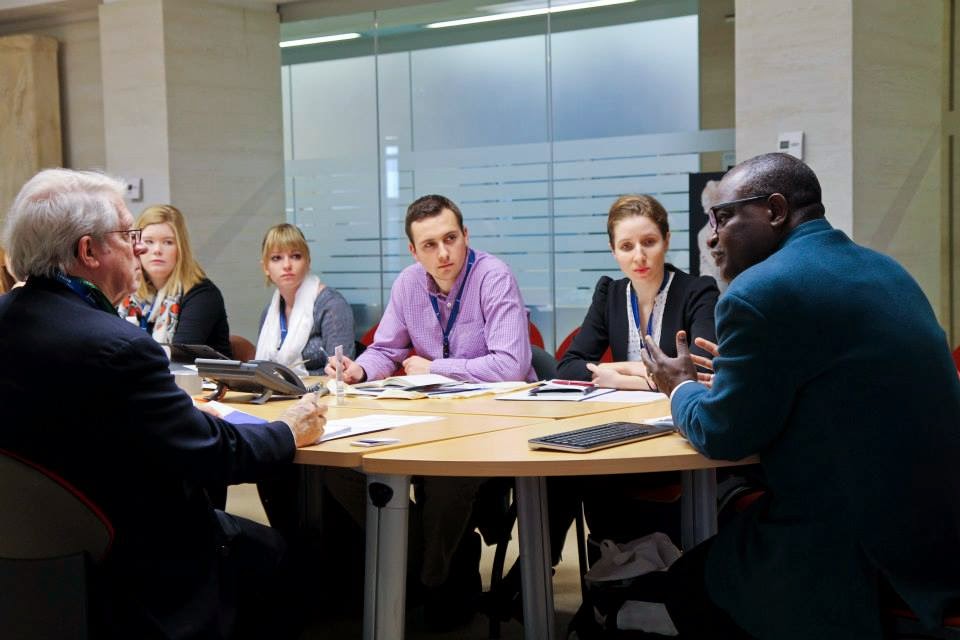Written by Francesco Farnè
IFAD hosted a group of students from the University of Missouri, USA, last Thursday for a visit to IFAD headquarters. As an Intern in the Communications division, I had the opportunity to support David Paqui, Regional Communication Officer for East and Southern Africa (ESA) and West and Central Africa, Communication Division, IFAD, in organising this event. |
| ©IFAD/D. Paqui |
The group of students, led by professor William H. Meyers, Director, College of Agriculture, Food and Natural Resources (CAFNR) International Programs, University of Missouri, was composed of young undergraduates in varied fields of studies: Agriculture and Food Security; Natural Science; Journalism and Communications.
 |
| ©IFAD/D. Paqui |
The briefing session consisted in a series of presentations on IFAD's background, mission and operations. All presentations were characterised by participation and interactivity, thanks both to the competence and interest of the students, who raised several clever questions, and to the capacity of the speakers to tell their experiences in a involving way.
Mr. Paqui gave a general overview on IFAD, its history, goal and mandate, as well as the organizational structure. The students were not aware of many of these aspects and were immediately engrossed in the presentation.
Mattia Prayer Galletti, Lead Technical Specialist, Policy and Technical Advisory Division, IFAD, shared his long-time experience in IFAD, with thrilling and stimulating stories from the field, with a particular focus on India and Vietnam.
 |
| ©IFAD/D. Paqui |
Marian Odenigbo, Special Advisor on Nutrition ESA, IFAD, gave a presentation on Nutrition. She was able to highlight the interconnections between a financial institution such as IFAD and the issue of nutrition. Improper diets, often due to lack of knowledge, are a major threat to smallholders’ health and consequently to agricultural development.
This thesis was supported by the projection of a video called “India – Millet madness”. Supporting millet production in India, IFAD encourage smallholders families to have more nutrient-rich diets. As a consequence, they have more energy and less health problems, thereby more productive in their work.
 |
| ©IFAD/D. Paqui |
In conclusion, Richard Aiello, Manager Staff Development Unit, HRD, gave a brief overview on job opportunities and the internship programme in IFAD. As a current intern, I introduced myself to the students and shared my experience working in COM, with them. I encouraged them to apply for the programme as soon as they will be eligible.
This has been, without a doubt a successful event and a unique opportunity for both IFAD and the MU students. For IFAD, because it was an opportunity to introduce our agency to young and proactive students. And for the students, as they had a chance to interact with eminent experts in their field of studies.
 |
| ©IFAD/D. Paqui |